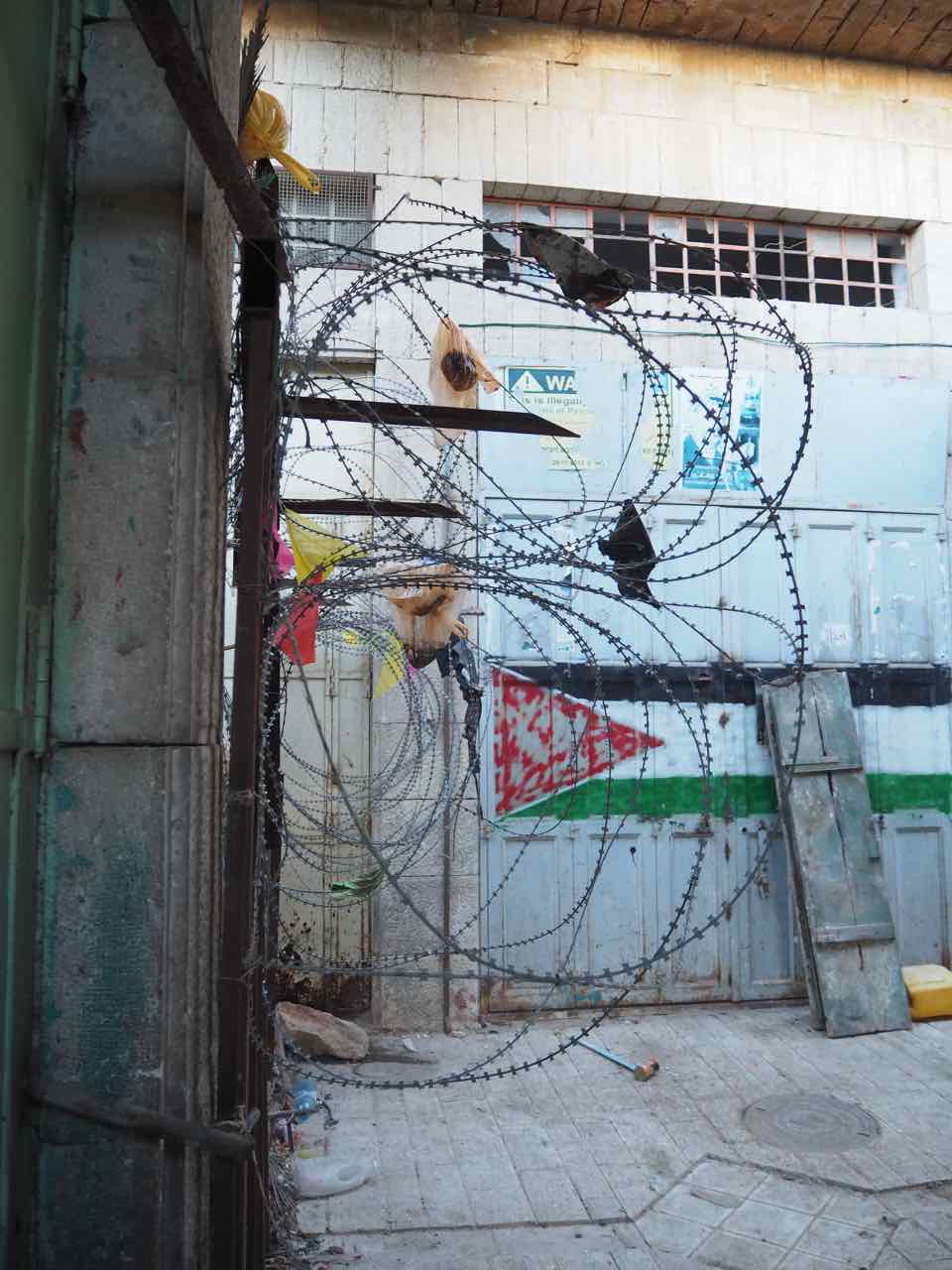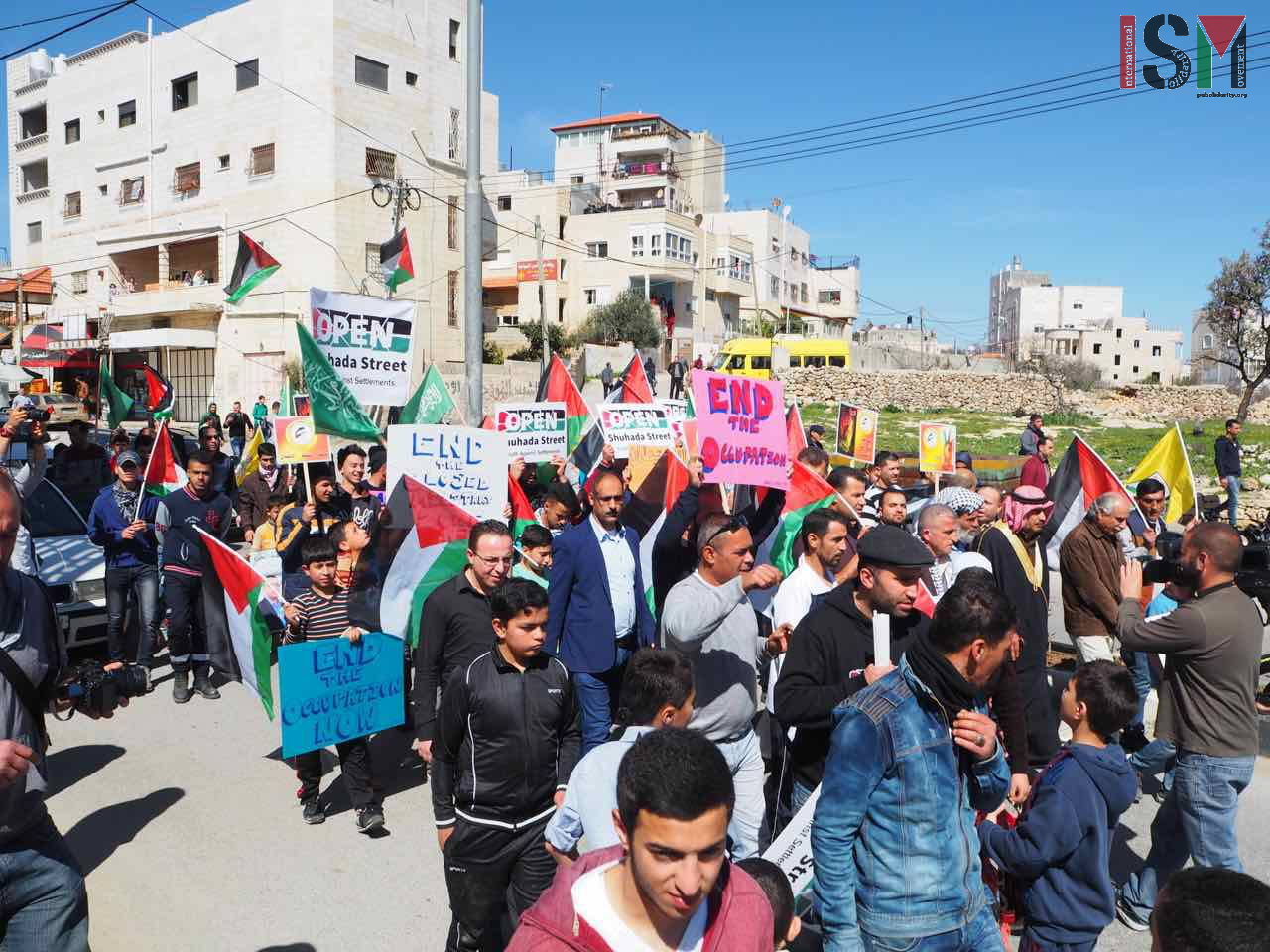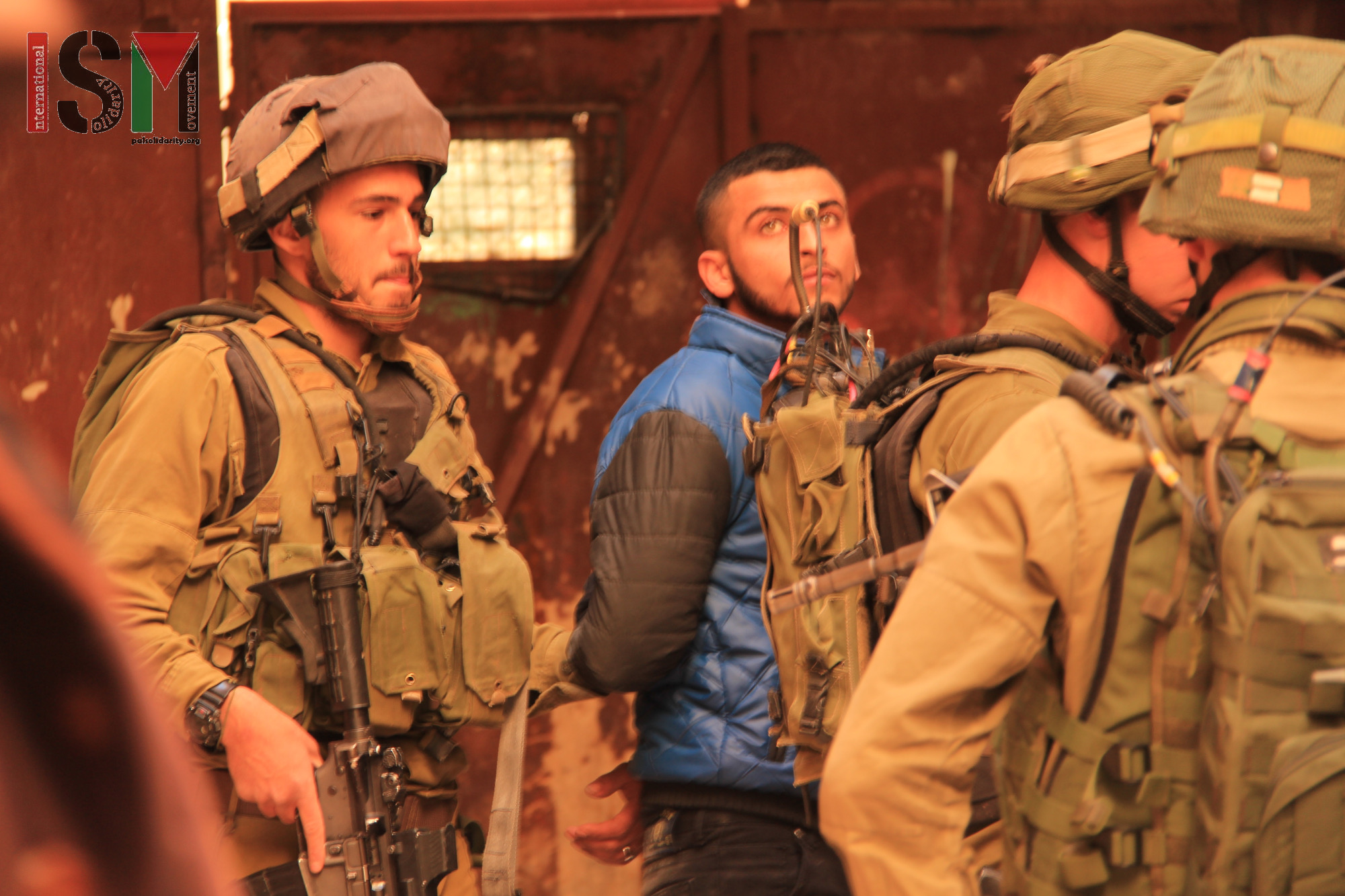Tag: Arrests
-
Bogus arrest of 12 year old boy in Hebron
3rd March 2016 | International Solidarity Movement, al-Khalil team | Hebron, occupied Palestine On the 28th of February around 4:00pm, 12 year old Palestinian boy, Sayed Seder was arrested by 10 heavily armed Israeli soldiers whilst playing football with his friends on the street in front of his family home. The Israeli army claim that…
-
Demonstrators call for end to unjust restrictions in Hebron 22 years after Ibrahimi mosque massacre
26th February 2016 | International Solidarity Movement, al-Khalil team | Hebron, occupied Palestine On 26th February 2016, Palestinians in occupied al-Khalil (Hebron) jointly commemorated the Ibrahimi Mosque massacre and protested against the closure of Shuhada Street and the illegal Israeli military occupation. The peaceful demonstration, organised by the local activist group Youth Against Settlements as…
-
Israeli forces continue policy of arbitrary and violent arrests in Hebron’s Old City
25th February 2016 | International Solidarity Movement, al-Khalil team | Hebron, occupied Palestine On 25th February 2016, Israeli forces violently arrested two Palestinian men in the souq, the Palestinian market, in occupied al-Khalil (Hebron). Both of them were arbitrarily arrested and finally allowed to leave only after residents intervened. Israeli forces entered a Palestinian house…



